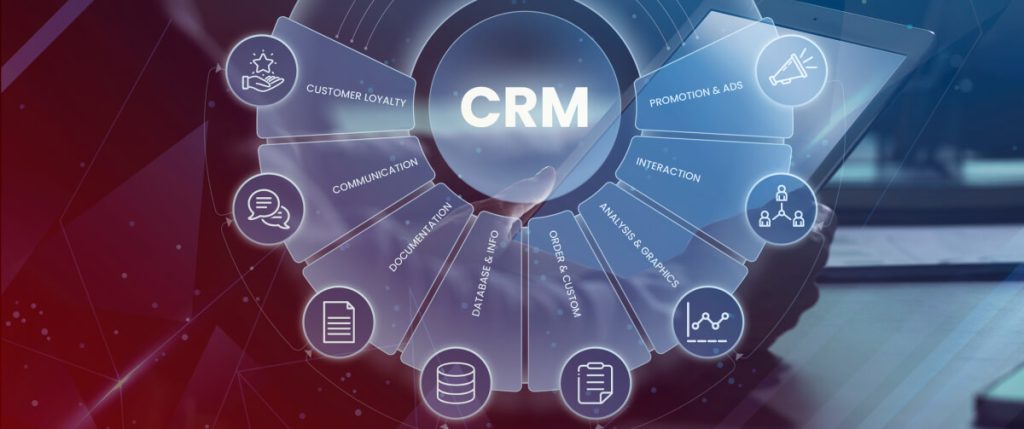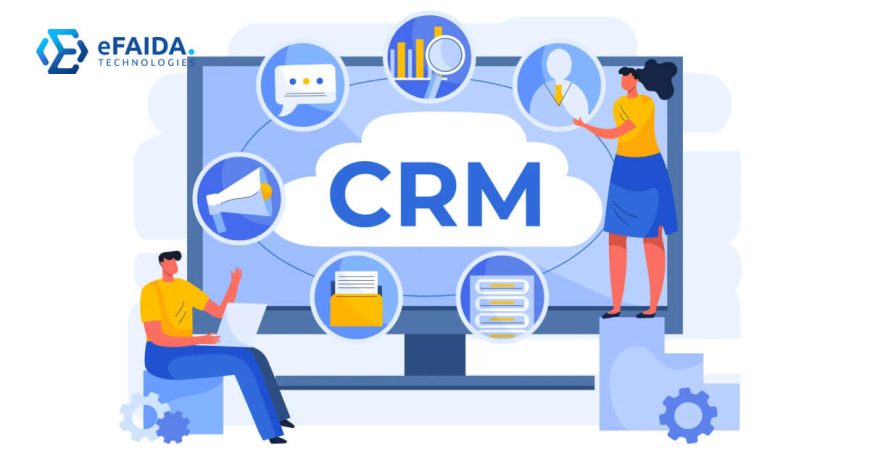Introduction
Nowadays we see a tough war among roofing companies and efficiency is the solution. Doing estimates, organizing projects, communicating with clients, and juggling leads is a process that comes effortlessly to some, and for others, it can be a big overload. The CRM serves this purpose right here now. A well-elaborated CRM system will resolve operational issues, increase the level of customer service, and consequently, bring your revenue to the top. But with the sea of choices you are provided with, deciding on the most suitable CRM for your roofing company might become a really hard task.
Our extensive article is dedicated to conducting the necessary analysis and explaining some of the things that you need to take into account when choosing, among the roofing industry’s many CRMs, the right solution for your business. Most frequently asked questions are also addressed to help ensure that you have all the information you need to make a sound decision.
Why Do Roofing Companies Need a CRM?
Try to picture this kind of situation where you end up with the lead information being distributed across your emails, little post-it notes, and handwritten notes. Messy and hard note-taking is the result and key information acquisition about customers takes a lot of time, thus, affecting the company’s ability to keep a lead or close a deal. CRM thus strives to eliminate any chaos from the scenario by offering a single point where all customer interactions are performed. CRM is described as follows. Roofing companies are the ones who are supposed to benefit from it. Note: The pronoun “it” should be replaced with the acronym CRM.
- Streamlined Lead Management: Scrap leads from different channels and map them as they move through the sales funnel, all the while prioritizing the strongest leads.
- Enhanced Sales Pipeline Visibility: Clearly visualize your sales pipeline, and hence, locate the processing bams, and upgrade the sales tactics accordingly. Anonymously rant with peers to maintain your mental health.
- Improved Customer Communication: Stick to your customers on their projects’ lifecycle so that you will build stronger relationships and customer numbers.
- Efficient Project Management: Handle projects smoothly, monitor crew arrangements, and always complete the tasks before the deadline without extra cost by doing so.
- Simplified Quoting and Invoicing: Make the creation of professional quotes and invoices more efficient, simplifying the process of being paid for.
- Data-Driven Decision Making: Create reports to be used for performance analyses, market trend identification, and to boost the company’s performance.
A list of improved beneficial notions that business owners can use for their roofing companies after integrating a CRM includes increased efficiency, improved customer satisfaction, and significant growth.
Key Features to Consider When Choosing a CRM for Roofing Companies
Not all of the CRMs have the same functionality because not all of the CRMs are created equal. Opting for a system with the priority of industry-specific functions is a must when identifying it for your roofing business. The ones below are some of the functions to think about supporting:
- Lead Capture and Management: With the CRM you will be able to capture leads from various channels including the website, phone inquiries, and offline sources like referrals. These capabilities could include lead qualifications, engagement tracking, and assigning leads to sales reps.
- Proposal and Quoting Tools: Develop professionalized proposals very fast and personalized. They include the exact material checklist, estimated working hours, and the whole project schedule.
- Job Management: Keep track of progress, assign, arrange, and report on crews with associated costs, budgets, and timelines complied. Navigate invoicing efficiently through seamless integration with your accounting system.
- Customer Communication Tools: Ensure good communication with Clients by e-mail, phone calls, and SMS Tend to connections with automation tools and customize lead nurturing and follow-up to ensure appointments are scheduled properly.
- Mobile App: A mobile app that might be used by your sales managers as well as their field squads, would ensure that they had current customer details, work specifics, and price estimates while on the field.
- Reporting and Analytics: Production of intelligent reports to mark sales returns, trace lead sources, and depict zones of improvement.
- Inventory Management: Keep track of the roofing materials’ availability, count stock levels, and automate the reordering processes to avoid delays in finishing the job. (Optional but beneficial)
- Integration with Existing Tools: The CRM should connect with the accounting software, marketing automation tools, and project management tools that are already in place. The integration of the CRM with those should be seamless.
By focusing on these specific functions, it can be delineated which CRM is a match for your roofing business for top performance.

Popular CRM Options for Roofing Companies
There are some popular CRM choices for roofing companies that we will cover in detail while highlighting their key difference. Below are some of the well-known CRM options for roofing companies, with their unique features:
- AccuLynx: A multi-purpose industrial management software tailored for the specific needs of different businesses. Installer AccuLynx offers the most effective management functionality, a machine learning algorithm for identifying prospects promptly, and also an all-in-one mobile app for crew members.
- Dataforma: Alongside Dataforma, which is another CRM platform that offers components like work orders posted on a calendar, warranty management, and a mobile app for field personnel.
- JobNimbus: An outstanding, yet user-friendly CRM software, JobNimbus gives its users lead management, project management, and customer communication tools via one platform.
- HubSpot: An all-around CRM often utilized by sole entrepreneurs to huge corporations, HubSpot provides a free version of essentials such as lead management, contact management, and basic reporting. Although it is not an industry-specific program, its success is determined by its relevance to the business needs of contractor companies.
- Zoho CRM: A well-rounded CRM that comes with sales automation, and email marketing modules and it also has built-in survey modules. Zoho provides a free plan that hosts the most indispensable features necessary which can be also upgraded to high-level paid plans for small to medium entrepreneurial projects.
Recall, this is not the whole list as some more skills and traits are essential for effective leaders. Initiate intensive research to discover other companies and systems and apply worthwhile software to the specific needs and financial capabilities of your company.
Conclusion
Conclusion
Casting the best CRM on your roofing company among the other crucial decisions. CRM helps to understand its features and benefits, analyze the needs of the company, and explore the options of the providers that have CRM in their portfolio; you will choose a proper CRM solution. CRM implementation allows you to operate systematically, optimize sales productivity, and in the end create long-term patient relationships. Consequently, CRM is a financial commitment towards your roofing enterprises – choose impressively.
FAQs on Choosing a CRM for Roofing Companies
1. What is the cost of a CRM for roofing companies?
CRM pricing can get rather confusing since it depends on the kinds of features that are being offered, the number of users, and the plan chosen. A normal-priced system like SageIntacct or Deltek Costpoint is often annoying because of the number of users and functionalities. There are other CRMs in the market like HubSpot and Zoho which have free plans that provide limited features only. They also have premium plans that will give your company access to advanced functionalities as your business grows. Along with your business’ unique budget, also analyze what CRM tool would suit your needs best based on cost.
2. Is it difficult to implement a CRM?
The implementation process of how CRM is established by a selected platform will be different depending on the platform system. A specific industry, like AccuLynx and Dataforma, set up their built-in training and education for a wide range of onboarding during your transition. Usually, most CRMs provide a convenient interface and support implementation, sometimes helping in implementation. If technical prowess isn’t your main concern, go for a CRM vendor whose support service can guarantee you the capacity to operate the CRM.
3. How long does it take to see results from using a CRM?
There is no universal timeline to see the effects of using a CRM in place. It depends on many aspects such as how good your strategy of implementation is and how deep the adoption of the CRM into the company’s work process is, last but not least how complex your current processes are. Even though some roofing businesses state that they see faster lead conversion, better sales efficiency, and impeccable customer communication in a short period after CRM introduction, others remain doubtful about the effectiveness of the CRM system.
4. What are some tips for getting the most out of a CRM for my roofing company?
Here are some key tips to maximize the benefits of a CRM for your roofing company:
- Clean Up Your Data: Ensure your CRM includes correct and up-to-date customer and prospect information for the same to be used for effective communication and lead nurturing.
- Train Your Team: Include AR training for your sales stars on how to work the CRM system flawlessly and ensure that your team in the field can really operate the tool daily.
- Utilize Reporting Tools: Frequently update the CRM reports so that the parts for improvement can be easily defined and the KPIs for lead generation, conversion, and customer delight can be tracked.
- Maintain Data Hygiene: Establish routinized policies that would be used to update client information and delete the leads that have been inactive for a certain period of time to increase the accuracy of the data.
5. Is it possible to integrate a CRM with other business tools?
Yes, the majority of CRMs come with options for integration with other business tools like accounting software, marketing tools, and project management systems. This facilitates smooth data transfers across different applications thereby giving you a consistent flow of operations in your company. Among the integrations that different CRM options provide, select the one that can work perfectly with your existing software infrastructure.




